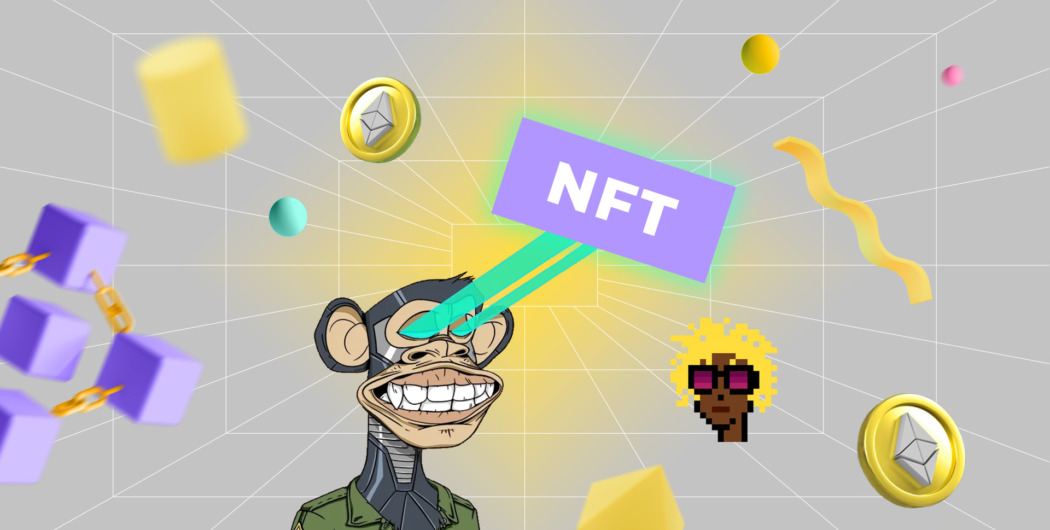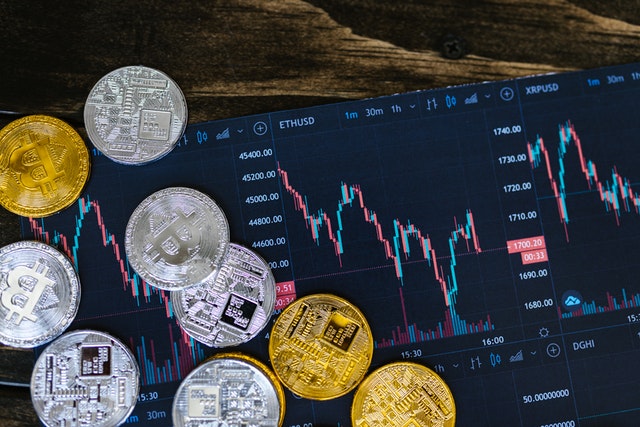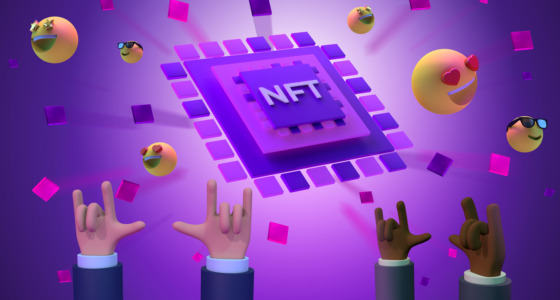

NFT is something of a buzzword these days. Everyone seems to be talking about it. But what is it? For that matter, what is cryptocurrency? And how are the two related?
NFTs have been around since 2014 but have grown massively more popular in the past few years. From January to June 2020, the market saw $13.7 million in sales. Between June 2020 and June 2021, the NFT market grew by an astounding 18,000%. But between January and June 2021, that number had increased to $2.5 billion.
If you don’t know much about NFTs and want to get in on the hype, then this article is for you.
What are NFTs?
NFT is short for “non-fungible token.” “Non-fungible” isn’t a word that comes up very often, but in short, it simply means unique or irreplaceable. Therefore, the term “non-fungible token” refers to a unit of data that is unique.
This data is stored on a distributed public ledger called a blockchain and represents some online or real-world asset, including in-game avatars, digital art, music, or real-life real estate. Usually, NFTs are stored on the Ethereum blockchain, but other types of blockchain can support them, too.
Some NFT marketplaces allow you to purchase tokens using a credit or debit card, but the vast majority of sites require you to use Bitcoin or other cryptocurrencies instead. However you pay for it, a record of your purchase is stored in the blockchain as proof of your purchase.
Buyers are given exclusive ownership rights to the NFT. Tokens can only be owned by one individual at any given time, and since they’re stored on a blockchain, it’s quite simple to confirm ownership. NFT creators are also able to store particular bits of data in an NFT’s metadata. For example, they can store their signature in the file.

But why are so many people willing to spend hundreds of thousands (if not millions) of dollars on images that anyone else can download or screenshot? The answer is simple. When you purchase an NFT, you purchase the original asset, complete with built-in proof of ownership. This authentication is where the real value of an NFT comes from, rather than the asset itself.
NFTs and blockchain technology represent a unique way for content creators to monetize their artwork. Rather than relying on a gallery to sell their work, creators can sell their art directly, meaning they receive a greater proportion of the returns. There is also the opportunity for them to receive royalties for their art, providing they program the NFT accordingly.
If you’d like to start collecting NFTs, you’ll need some things first. So that you can store tokens and crypto, you’ll need a digital wallet. Depending on what type of currency your NFT provider takes, you may need to acquire cryptocurrency to purchase your tokens. As you look into your options, keep in mind that many exchanges charge a percentage of the capital you spend on crypto.
What is cryptocurrency?
Cryptocurrency is a type of virtual currency secured using cryptography. Most cryptocurrencies are blockchain-based decentralized networks. This decentralization is a key aspect of cryptocurrency; crypto coins aren’t issued by any state authority and are therefore free from any government manipulation.
Crypto’s secure, cryptographic nature allows for direct payments to be made without the use of an intermediary. Because of this, crypto transactions are cheaper and faster than other types of monetary transactions.

Are NFTs a scam?
You may wonder what to tell people who think NFTs are a scam. It’s understandable why people might jump to this conclusion. NFTs are expensive, and it can be difficult to understand them.
The truth is that some NFT projects are scams—however, this is not reflective of NFTs as a whole. There are scams in every industry out there, but that does not mean that every industry is inherently a scam. Furthermore, NFTs’ high prices are largely driven by supply and demand. Given the popularity of these tokens, it’s not surprising that so many people are showing an interest in them, driving the price up.
The bottom line is that NFTs represent an investment in something irreplaceable and unique. As well as this, they are assets that cannot be duplicated or damaged, unlike physical assets.
Conclusion
This article has explained what NFTs and cryptos are. With so much chatter surrounding them, it can be difficult to find sources that succinctly explain what these terms refer to. Hopefully, this article has shone some light on the topic for you.








